ERP Development: Building Custom ERP Systems for Business Growth

In a fast-changing digital landscape, businesses require systems that are not just efficient — they must be agile, scalable, and fully aligned with the organization’s unique workflows. This is where ERP development plays a transformative role.
Instead of settling for off-the-shelf software that may not meet all requirements, many organizations are now investing in custom ERP development — a solution that provides full control over features, integrations, and performance.
In this blog post, we’ll explore the meaning of ERP development, its benefits, when to choose custom ERP over standard solutions, and how to approach the process strategically.
🧰 What is ERP Development?
ERP development refers to the process of designing, building, and deploying a tailored ERP system from the ground up or customizing an existing ERP platform to meet specific business requirements.
This may include:
-
Creating custom modules for operations, finance, HR, inventory, etc.
-
Designing unique user interfaces and dashboards
-
Integrating with third-party tools (e.g. CRM, eCommerce, logistics)
-
Developing mobile-compatible ERP solutions
-
Setting up business-specific workflows and automations
Custom ERP development gives you full control over system logic, data models, permissions, and scalability.
🔄 When Do You Need Custom ERP Development?
While many ERP vendors (e.g. SAP, Oracle, NetSuite) offer configurable systems, these might still fall short in:
-
Highly specialized industries (e.g. aerospace, healthcare, legal, education)
-
Companies with unique processes that don’t fit generic software
-
Rapidly scaling businesses that need flexible architecture
-
Organizations operating across multiple regions with localization needs
-
Companies with legacy system integration challenges
In such cases, developing a custom ERP system can offer better long-term value and adaptability.
🚀 Benefits of Custom ERP Development
✅ 1. Business Process Alignment
The ERP system reflects your exact operations — not the other way around.
✅ 2. Scalability
Add features, modules, or integrations as your business grows — no limitations.
✅ 3. Improved Productivity
Custom workflows, automation, and intuitive interfaces reduce user friction and manual work.
✅ 4. Cost-Effective in the Long Term
While upfront investment is higher, the system can be maintained without recurring licensing fees and vendor limitations.
✅ 5. Enhanced Security
Develop security protocols tailored to your organization and compliance needs (e.g., HIPAA, GDPR, ISO).
⚙️ Key Features in ERP Development
A fully developed ERP system may include:
-
Finance & Accounting Module
-
Inventory & Supply Chain Management
-
HR & Payroll Management
-
Sales & CRM Module
-
Procurement & Vendor Management
-
Project Management
-
Customer Support / Helpdesk
-
Custom Dashboards & BI Reports
-
Mobile Accessibility
-
Workflow Automation & Alerts
These modules can be built incrementally using agile methodologies, allowing for testing, feedback, and adaptation.
🧠 Custom ERP vs Off-the-Shelf ERP: A Comparison
| Feature | Custom ERP | Off-the-Shelf ERP |
|---|---|---|
| Flexibility | ✅ Fully customizable | ⚠️ Limited to vendor features |
| Cost | 💰 Higher upfront | 💳 Subscription-based, long-term cost |
| Time to Deploy | 🕒 Longer (3–12+ months) | ⚡ Faster (1–3 months) |
| Scalability | ✅ Modular and extendable | ⚠️ May require add-ons |
| Control | ✅ Full ownership | ❌ Vendor controlled |
| Support | 🧑💻 Internal or dedicated | 🎧 Vendor helpdesk |
Conclusion: If your business has specific needs, custom ERP development offers a better return on investment over time.
🛠️ Technologies Used in ERP Development
-
Backend: Node.js, Django, .NET Core, Java Spring
-
Frontend: Angular, React, Vue.js
-
Mobile: Flutter, React Native, Kotlin
-
Databases: PostgreSQL, MySQL, MongoDB, Oracle
-
APIs: RESTful, GraphQL
-
Hosting: AWS, Azure, Google Cloud, On-premise
-
Security: OAuth 2.0, JWT, SSL, role-based access control
📈 Example Use Case
A logistics company operates across 5 countries with varying tax regulations and fleet tracking needs. Standard ERP systems lacked real-time GPS integration and multi-currency invoice processing.
By developing a custom ERP solution:
-
They integrated live vehicle tracking with orders
-
Created role-based dashboards for regional managers
-
Automated compliance reports for each country
-
Achieved 40% faster dispatch time and 25% cost reduction in operations
🧭 Best Practices for ERP Development
-
Define Clear Objectives
What problems must the ERP solve? Who will use it? -
Start with MVP (Minimum Viable Product)
Focus on core modules first — add features later. -
Use Agile Development
Break the project into sprints, review progress regularly, and adapt as needed. -
Involve End Users
Get feedback early from employees who will use the system daily. -
Prioritize Security & Compliance
Build with secure coding standards and compliance frameworks from day one. -
Plan for Training & Documentation
A well-built ERP is useless if no one knows how to use it.
🧾 Final Thoughts: Is ERP Development Right for You?
If your business is growing, has unique operational requirements, or struggles with fragmented systems — custom ERP development may be the solution you’ve been waiting for.
Yes, it requires more upfront investment and time. But the long-term gains in efficiency, adaptability, and control are often far greater than sticking with a one-size-fits-all ERP.
Choose the right development partner, align your system with business goals, and you’ll be on the path to building an ERP system that truly empowers your enterprise.
